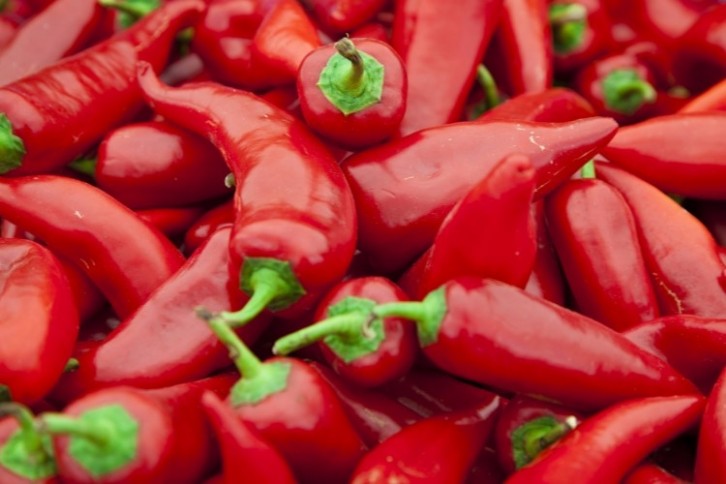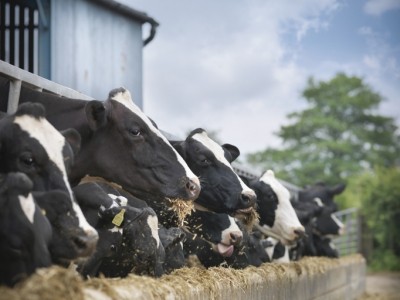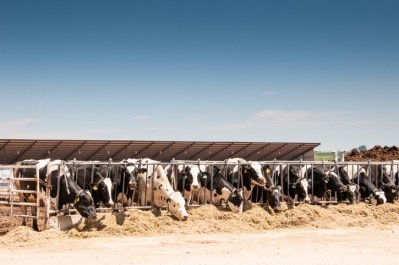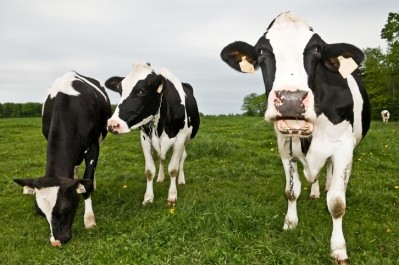Can botanicals improve milk production in dairy cows?

Could the ingredient that gives chilli peppers their heat also help cows produce more milk and less methane? These were some of the questions that the team led by professor Alexander N. Hristov wanted to address.
The researchers picked capiscum oleoresin - an oily extract derived from peppers, its active ingredient capsaicin typically used in pepper spray - and clove oil as previous research had suggested promising results when the two were supplemented to lactating dairy cows.
The effects of botanicals had been researched in the past for their potential impact on enteric methane formation, microbial activity and effects on cow health, but with variable results. In addition, a prior experiment conducted by the same group of researchers showed some promising results, such as a decrease of daily enteric methane emissions and increase in milk fat concentration in lactating cows.
“We hypothesized that supplementation of botanicals would improve lactational performance and energy balance, while reducing enteric CH4 emission yield and intensity in peak-lactation cows,” the researchers wrote. “These changes would also be associated with improved ruminal fermentation and efficiency of nutrient utilization, but responses to botanical supplementation could be different between primiparous and multiparous cows. Therefore, a secondary objective was to investigate a treatment × parity interaction of botanical supplementation.”
This second trial was carried out over 10 weeks and involved a mix of 45 primiparous and multiparous Holsteins, which were randomly assigned one of three types of treatment – a basal diet with no botanicals, basal diet supplemented with 300mg/cow of capsicum oleoresin per day, and basal diet supplemented with 300mg/cow per day of a combination of capsicum oleoresin and clove oil.
As a result, the two bioactive compounds improved energy efficiency, though instead of utilizing that energy for milk production, some of the cows gained weight, particularly peak-lactating cows.
The experiment also showed decreased enteric methane yield and intensity per kilo of milk, by 9% and 11% respectively for cows that consumed both botanicals as part of their diet. Compared to the control group and the group that was supplemented with capsicum oleoresin only, the group that consumed both botanicals had decreased enteric methane production, yield and intensity per kilo of milk yield by up to 18% in cows that had birthed for the first time. That effect wasn’t observed in multiparous cows, however.
The researchers attributed this result to the presence of clove oil, which prior studies had found to mitigate the effects of methane when supplemented in vitro. Methane intensity per kilo of energy-corrected milk and carbon dioxide production was not affected by the treatments, the researchers pointed out.
The treatments did not affect rumen pH and key physiological metrics such as acetate, butyrate and valerate, though it decreased propionate concentration in cows to whom one or both of the botanicals were fed.
The absorption of ruminal ammonia was likely increased, the researchers suggested, with the excess nitrogen excreted in milk.
“The botanicals improved body weight gain compared to the control group, and the addition of capsicum oleoresin also enhanced efficiency,” the study concluded. “Enteric methane production was not affected by the treatment but the methane intensity per kilo of milk yield was decreased.”
Source:
Lactational performance, enteric methane emission, and nutrient utilization of dairy cows supplemented with botanicals
Authors: L.F. Martins, S.F. Cueva, T. Silvestre, N. Stepanchenko, D.E. Wasson, E. Wall, A.N. Hristov
Published: Journal of Dairy Science, Vol 107, Issue 1, P242-257, January 2024
DOI: 10.3168/jds.2023-23719










